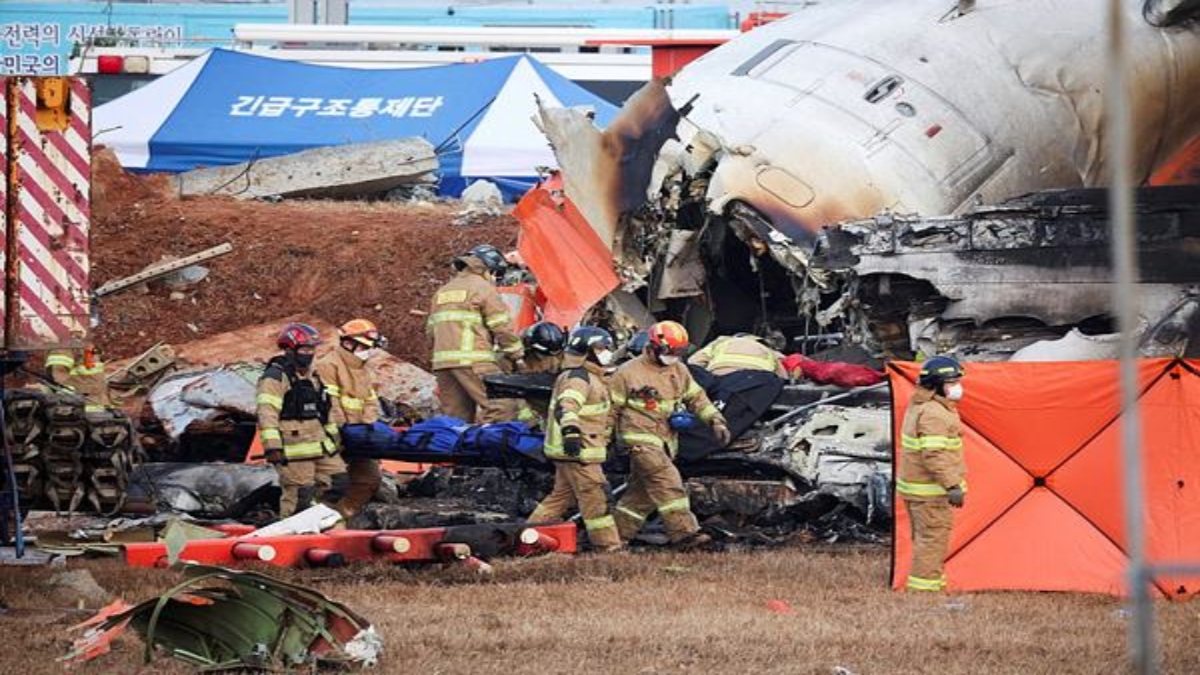South Korea is reeling from its worst domestic air disaster, which claimed the lives of 179 people, including 175 passengers and four crew members. Acting President Choi Sang-mok has called for an immediate safety inspection of the nation’s aviation operations as investigations into the tragic incident continue.
On Sunday, Jeju Air Flight 7C2216, a Boeing 737-800, crash-landed at Muan International Airport during its final approach. The aircraft belly-landed, skidded off the runway, and erupted into flames after hitting a concrete embankment. Two crew members survived and are receiving treatment, while efforts to identify the victims are underway.
Emergency Safety Measures Ordered
Acting President Choi has directed the transport ministry to conduct an immediate inspection of South Korea’s airline safety systems. A special focus will be placed on the maintenance records of all 101 Boeing 737-800 aircraft currently operated by South Korean airlines.
“Transparency in the investigation process and timely communication with the bereaved families is paramount,” Choi emphasised during a disaster management meeting in Seoul.
Crash Details Under Scrutiny
Investigators are exploring multiple factors, including:
- Bird Strike: The pilots reported a bird strike during their approach and declared a Mayday before attempting a belly landing.
- Speed and Control Issues: Experts are questioning the plane’s speed and the absence of landing gear during the crash.
- Runway Infrastructure: The role of the localiser antenna and the concrete embankment at the runway’s end is also under review.
Transportation ministry officials confirmed the recovery of the flight data recorder, which will be analysed with assistance from US National Transportation Safety Board (NTSB) and Boeing experts.
Impact on Families and Memorial Efforts
Families of the victims are grappling with the devastating loss, with many demanding swift identification of their loved ones. A memorial has been established near the crash site, drawing mourners, including Acting President Choi, who vowed to prioritise recovery and support efforts.
Park Han-shin, who lost his brother in the crash, urged families to unite, referencing the 2014 Sewol ferry disaster that highlighted delays in victim identification and accountability.
Economic and Industry Fallout
The disaster has shaken South Korea’s aviation industry. Shares of Jeju Air plummeted 15.7 per cent, marking their lowest level ever. Boeing’s US-listed shares also dropped 4.2 per cent, erasing $5 billion in market capitalisation.
Insurance claims are expected to range between $135 million and $200 million, covering the aircraft hull and passenger liabilities, according to industry estimates.
Muan International Airport remains closed until Wednesday as recovery efforts continue. Other South Korean airports, including Incheon International Airport, are operating as scheduled.
Choi’s administration, newly appointed after political turmoil, faces the challenge of rebuilding public trust in aviation safety while supporting grieving families.
The investigation, led by South Korean authorities with international support, aims to uncover the root causes of the crash and implement measures to prevent future tragedies.
(With agency inputs)






